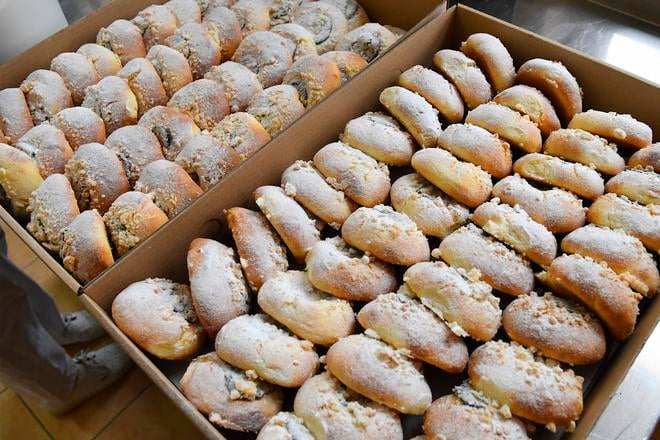What starts as a grandmother’s recipe and a love for baking can quickly turn into something much less wholesome. Across Slovakia, the underground trade in homemade cakes and pastries is thriving, particularly in the run-up to holidays like Easter, according to the regional news website My Žilina. While these self-styled artisanal bakers market their goods as honest, homegrown treats, many are operating outside the law, avoiding taxes and health regulations.
The Slovak Association of Bakers, Confectioners and Pasta Makers has been raising the alarm, warning that unregulated sales pose health risks to consumers. Because these businesses operate without registration, they evade state oversight. The problem is most acute in northern and eastern Slovakia, particularly in the regions of Orava and Kysuce.
“In some areas, nearly every third household is involved in illicit baking,” says Milan Lapšanský, the association’s head.
While some have already faced penalties–fines for selling homemade cakes can exceed €3,000–many more continue undeterred. The association estimates that such shadow businesses cost the Slovak state at least €12 million annually in lost taxes.
The crackdown on illicit baking
Authorities have stepped up efforts to rein in the black market. Over the past year, enforcement has intensified, with the Interior Ministry handing out fines for unlicensed trade. Meanwhile, the Agriculture Ministry is preparing new legislation to make it easier to prosecute illegal food producers.
The issue is not just about tax evasion. Because these home businesses are unregulated, they sidestep food safety standards, raising concerns over hygiene and ingredient sourcing. Unlike licensed bakeries, they are not subject to routine inspections by health and food safety authorities.
Yet despite the risks, Slovakia’s illegal baking industry remains lucrative. Some of these products even sell for more than their legally produced counterparts.
“It’s strange,” says Lapšanský. “These home bakers charge more than professionals who pay taxes, employ staff legally and operate in approved facilities with higher electricity costs. But as long as they present their cakes as ‘made with grandma’s recipes and homegrown ingredients’, people buy them.”
Consumer awareness
While authorities tighten regulations, consumer attitudes are also shifting.
“People are starting to reject illegal sales,” says Lapšanský.
A bakery owner in Žilina, who has run a legal business since 2006, says he is unfazed by underground competition.
“Our customers know us, they trust our quality. We undergo up to four health inspections a year. Those baking at home can’t possibly meet the same hygiene standards. In the end, it’s up to the buyer to decide.”
For now, however, Slovakia’s black market in cakes and pastries remains a stubborn problem.


